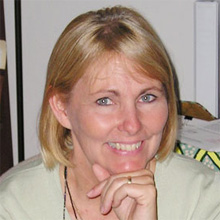2012 Webinar Series
Topic:Thinking Systemically: Six Lessons of System of Care Date/Time:October 30, 2012 ViewSynopsis:Creating new system entities that are values-based, voluntary, and cross-agency alliances that include formal child-serving entities, youth, and families requires thinking systemically. This 1-hour webinar will offer a model of purposeful systems change that is grounded in real world actions. Six lessons derived from the systems change experiences with established system of care communities will be presented and their application to other systems change initiatives will be discussed. This webinar hosted by Community Solutions at the University of South Florida is for educational purposes only. Webinar content may not be reproduced, downloaded, disseminated, published, or transferred in any form or by any means, except with the prior written permission of the Department of Child & Family Studies' Chair. |
Delivered by:Sharon Hodges, PhD, MBA, Research Associate Professor and Division Director in the USF Department of Child & Family Studies Kathleen Ferreira, PhD., Research Assistant Professor in the USF Department of Child & Family Studies As a research professor and applied organizational anthropologist, Dr. Hodges has more than 15 years experience working with community coalitions in children’s mental health. Her research, training, and technical assistance efforts have focused on service system development and change, and her expertise includes qualitative and applied ethnographic field methods. Past work includes research and technical assistance on system accountability as well as on how organizational culture affects the utilization of outcome information. Dr. Ferreira has extensive hands-on experience in the field of mental health, first as an educator, then a Director of Education and Program Director within a community-based mental health agency prior to joining the Department of Child and Family Studies. She brings a great deal of experience in conducting qualitative research, and a particular interest in the role of organizational, system, and policy level actions in providing support for successful implementation and sustainability of services at the individual child/youth and family level. |
|||


